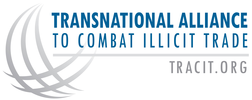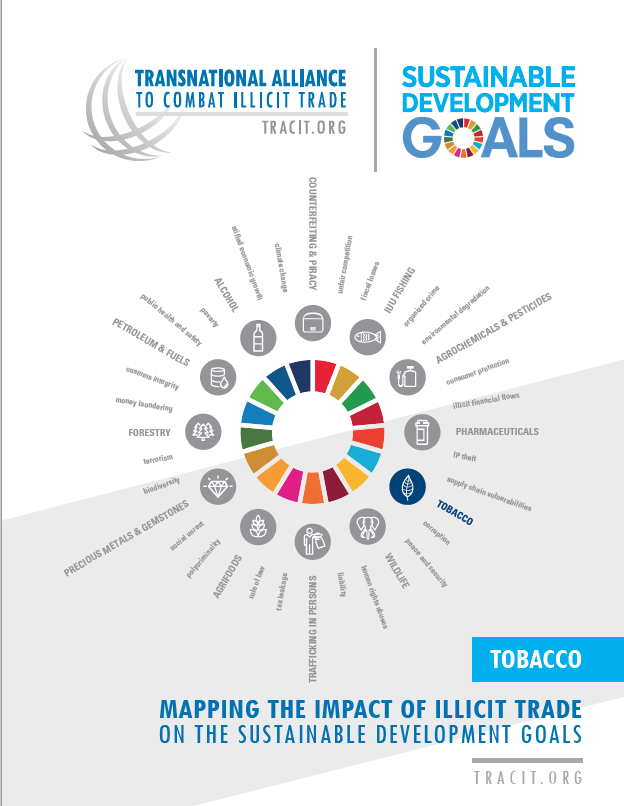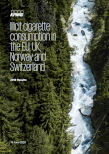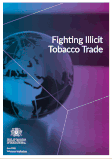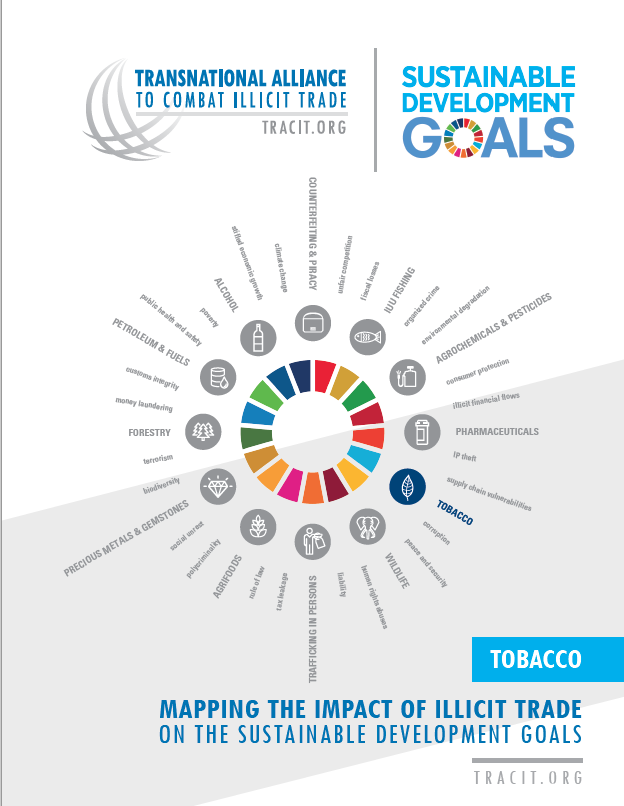Illicit Trade in Tobacco Products

The annual value of the illicit trade in tobacco is estimated at US$ 40 billion (Euromonitor International, 2016), with one in every 10 cigarettes consumed being illicit (WHO, 2015). The illicit tobacco trade results in a considerable loss of tax and duty revenue for governments, and helps fund organized crime as well as terrorist groups (OECD, 2016). The low penalties and detection rates, coupled with high profit margins, makes this type of illicit trade an important source of revenue for criminal networks.
Among the forms of illicit trade affecting tobacco products, the manufacturing, distribution and sale of so called “illicit whites” appears as an increasingly worrying phenomenon. Illicit whites are produced legally in a country; however, they are not intended for the domestic market as they are produced with the sole objective of smuggling abroad. According to the KPMG, “illicit whites brand flows continued to represent over one third of C&C in the EU, equating to 3.5% of total cigarette consumption. The number of illicit whites brands increased by 12% with many identified in small volumes; this may further complicate identification of the source and nature of the product" (KPMG, 2016). Overall, for the tobacco industry the illicit trade in cigarettes results in lost revenue, reputational damage and loss of consumer trust, and increased costs in supply chain monitoring and the implementation of technologies that enable companies to track and trace their products. Featured report
|
Learn how illicit trade in tobacco products impacts the achievement of the UN Sustainable Development Goals
From smuggling, counterfeiting and tax evasion, to the illegal sale or possession of goods, services, humans and wildlife, illicit trade is compromising the attainment of the UN SDGs in significant ways, crowding out legitimate economic activity, depriving governments of revenues for investment in vital public services, dislocating millions of legitimate jobs and causing irreversible damage to ecosystems and human lives.
The TRACIT report Mapping the Impact of Illicit Trade on the Sustainable Development Goals investigates illicit trade in 12 key sectors that participate significantly in international trade and are most vulnerable to illicit trade. For each sector, the negative impacts of illicit trade are mapped against the 17 UN SDGs. The full report is available here. Read the chapter: SDGs and illicit trade in tobacco products |
